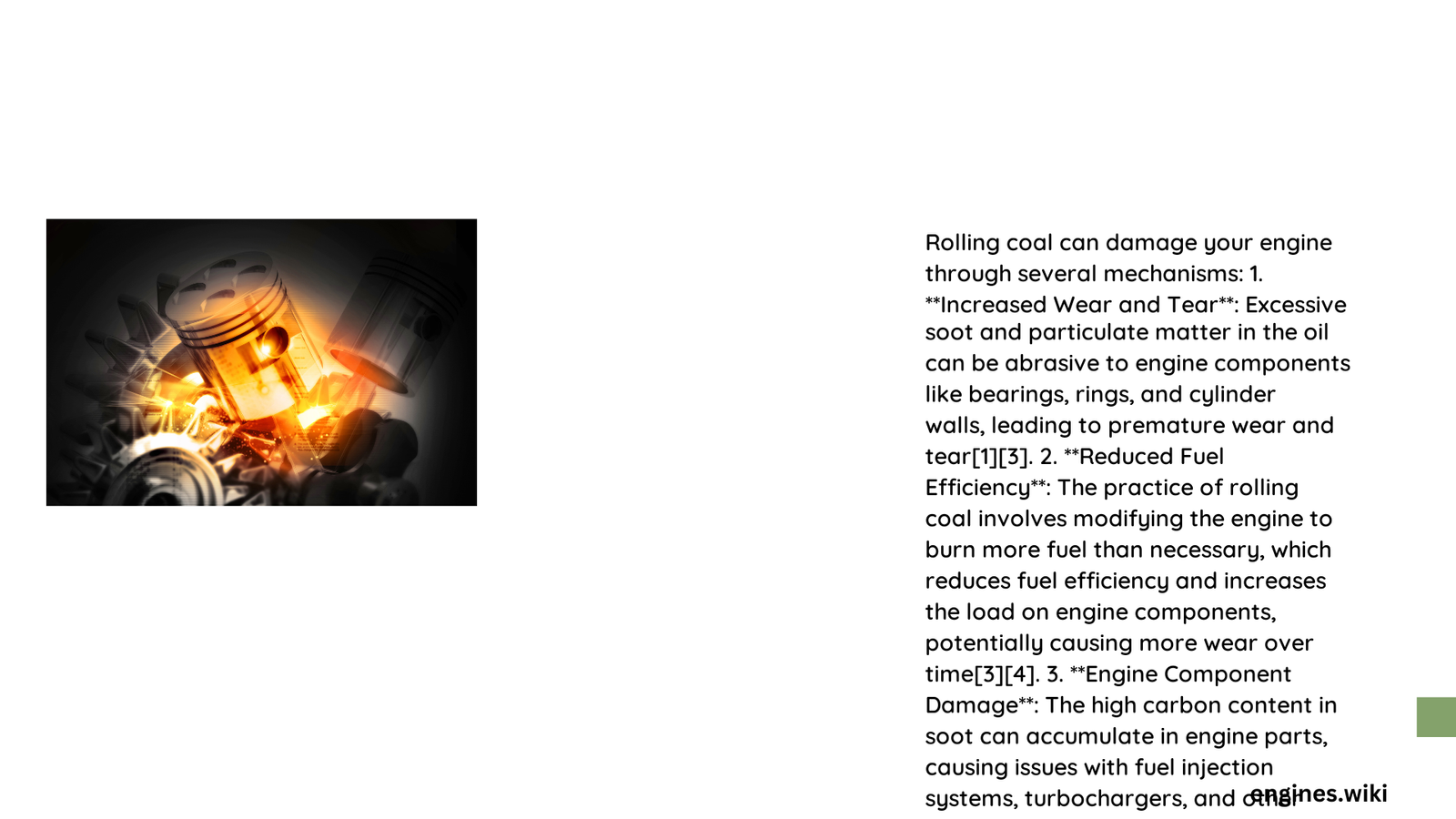Rolling coal is a destructive practice that can cause severe and long-lasting damage to your diesel engine. By intentionally modifying diesel trucks to emit excessive black exhaust smoke, vehicle owners risk compromising engine components, increasing wear rates, and dramatically reducing overall engine performance. This practice not only harms the engine mechanically but also creates significant environmental and potential legal consequences.
What Happens When You Roll Coal?
Rolling coal involves deliberately manipulating a diesel engine’s fuel-to-air ratio to produce massive amounts of black exhaust smoke. This modification creates multiple critical problems for your vehicle’s engine system.
How Does Particulate Matter Destroy Engine Components?
When a diesel engine is modified to roll coal, several destructive mechanisms occur:
- Soot Accumulation
- Increases abrasive particles in engine oil
- Causes premature wear on critical components
-
Reduces lubrication system effectiveness
-
Injector and Turbocharger Damage
- Clogs fuel injectors
- Reduces turbocharger efficiency
- Creates potential for complete system failure
What Are the Specific Mechanical Risks?
| Risk Category | Potential Damage | Estimated Cost |
|---|---|---|
| Oil System | Increased wear on bearings | $500-$2,000 |
| Fuel System | Injector clogging | $300-$1,500 |
| Turbocharger | Reduced performance | $1,000-$3,500 |
| Overall Engine | Premature failure | $5,000-$15,000 |
Why Do Emissions Matter for Engine Health?
The EPA has documented alarming statistics about rolling coal’s environmental and mechanical impact:
- Nitrogen oxide emissions can increase up to 310 times normal levels
- Particulate matter can rise by extraordinary percentages
- Over 500,000 diesel pickups produce emissions equivalent to 9 million standard trucks
Can Rolling Coal Lead to Complete Engine Failure?
Continuous rolling coal practices can absolutely lead to complete engine failure. The combination of:
– Excessive soot buildup
– Reduced lubrication effectiveness
– Increased friction between moving parts
– Compromised fuel delivery systems
Ultimately creates an environment where catastrophic engine breakdown becomes increasingly probable.
What Are the Long-Term Maintenance Challenges?
Owners who engage in rolling coal will experience:
– More frequent oil changes
– Increased filter replacements
– Higher maintenance costs
– Reduced engine lifespan
– Potential voiding of manufacturer warranties
Expert Recommendations

- Avoid modifying your diesel engine for rolling coal
- Maintain regular service intervals
- Use high-quality lubricants
- Monitor engine performance closely
- Address any unusual exhaust or performance issues immediately
Final Technical Assessment
Rolling coal is not just an environmental nuisance—it’s a direct threat to your engine’s structural integrity and performance. The mechanical stress, increased wear, and systemic damage far outweigh any perceived performance benefits.
References:
– EPA Emissions Study
– Diesel Performance Research
– Automotive Engineering Journal
